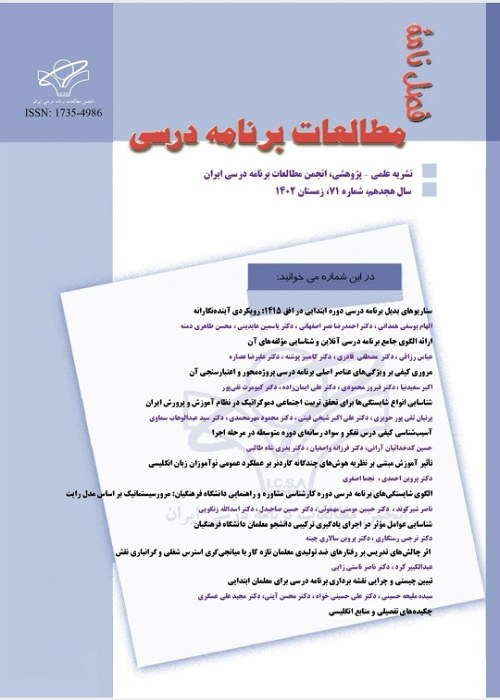The Pattern of Value and Skill Related Consequences of Aesthetic Education
The purpose of this study was to systematically study and present a meta-synthesis of theoretical models and research related to the consequences of aesthetic education based on attitudes (beliefs, values) and skills. The research approach was qualitative using a cross-cutting research methodology. The data were analyzed using inductive content analysis with a directional approach, in which recent research was systematically selected, and the content was analyzed and categorized. The study corpus included subject-related research published from 2000 to 2019 in reputable national and international academic data bases. Finally, among the 60 articles and books, 47 were selected by purposive sampling. First, the theoretical bases and the main themes were extracted, coded and classified. The results indicated the conceptual model in the three main classes of attitudes (beliefs, values), cognitive skills and practical (experimental) skills. It should be mentioned that categories overlap in some respects. The results of aesthetic education in the development of consequences such as understanding and enjoyment of beauty, social action, promotion of thinking, learning-based experiences and semantic connection with the real world were emphasized.
- حق عضویت دریافتی صرف حمایت از نشریات عضو و نگهداری، تکمیل و توسعه مگیران میشود.
- پرداخت حق اشتراک و دانلود مقالات اجازه بازنشر آن در سایر رسانههای چاپی و دیجیتال را به کاربر نمیدهد.



